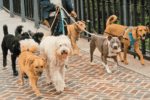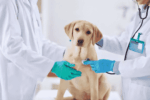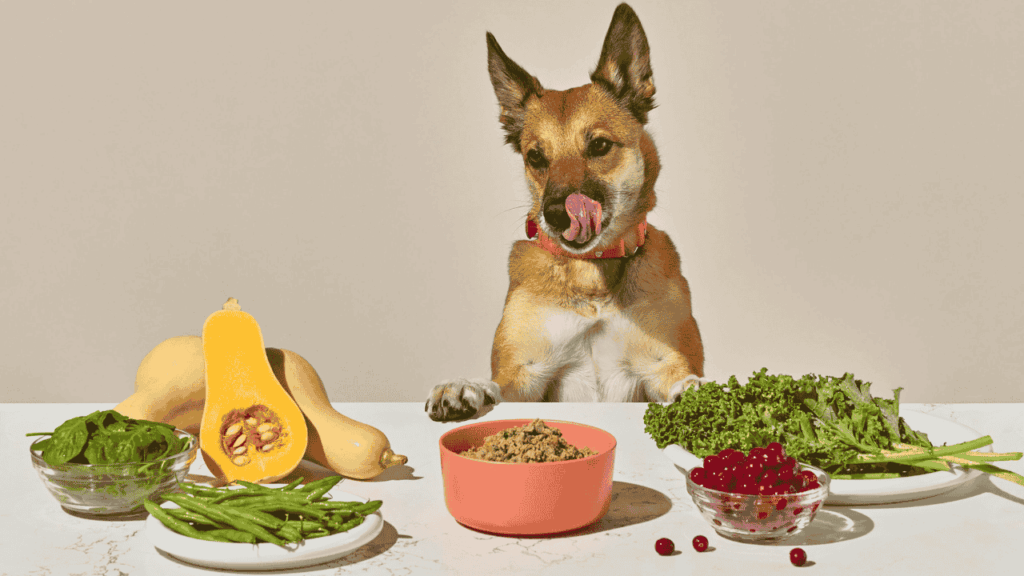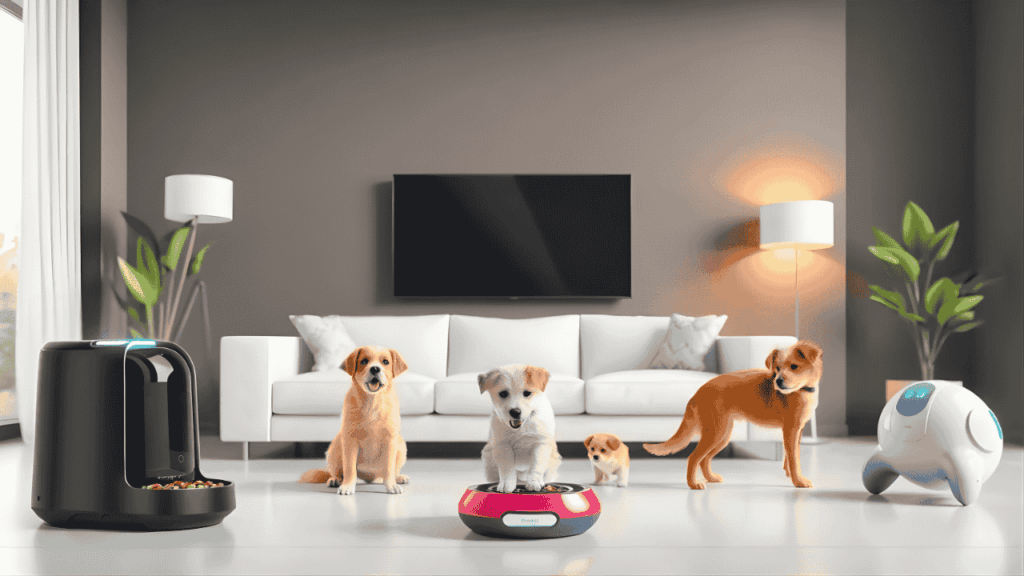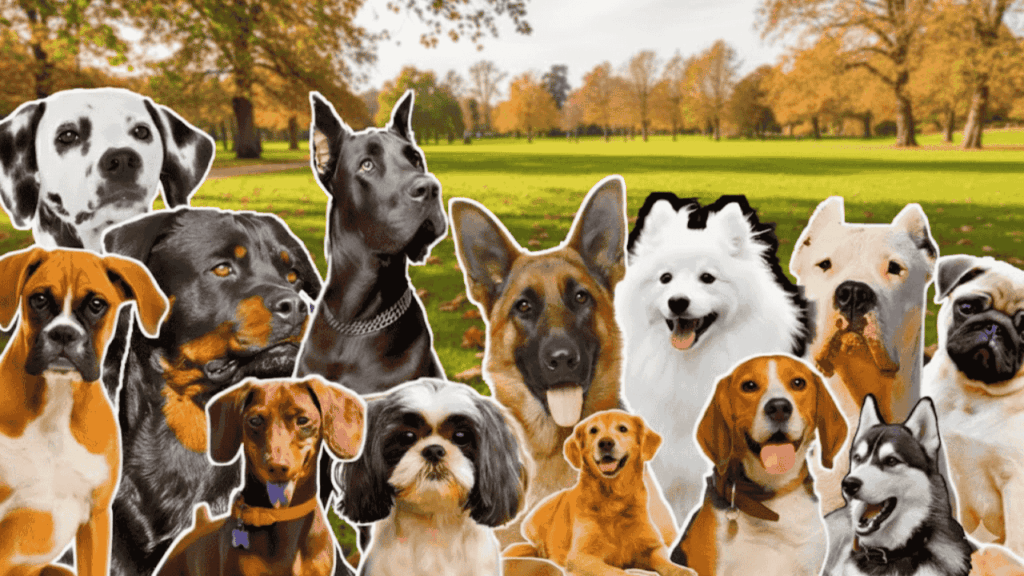Fireworks anxiety in dogs is a common problem faced by many pet owners in the United States, especially during celebrations like Independence Day, New Year’s Eve, and local festivals. The sudden loud noises, bright flashes, and unfamiliar vibrations can easily frighten dogs, causing them to panic, hide, or even run away. This reaction isn’t just about being scared; it’s a stress response that can affect their overall well-being.
Dogs have much more sensitive hearing than humans, so the sound of fireworks can feel overwhelming and even painful to them. The unpredictability of the noise adds to their fear because they can’t understand where it’s coming from or when it will stop. For some dogs, this anxiety can be mild, but for others, it can lead to shaking, drooling, barking excessively, or trying to escape from the house.
Understanding that this fear is instinctive and not a sign of bad behavior is the first step toward helping your dog feel safe and calm during fireworks season.
When Do Dogs Experience the Most Fireworks Anxiety
In the United States, dogs tend to experience the most anxiety during holidays like the Fourth of July, New Year’s Eve, and local festivals that include firework displays. During these times, many neighborhoods host events that last for several hours, often extending late into the night. For dogs, this can mean a long period of unpredictable loud sounds and bright lights.
Fireworks season also varies depending on location. Some areas celebrate with fireworks for several days before and after the official holiday, which means dogs may face repeated exposure. Even small community events or private celebrations in residential areas can trigger anxiety.
It’s important for pet owners to stay aware of local event schedules and prepare in advance. Knowing when fireworks are likely to happen gives you time to set up a calm environment and reduce your dog’s stress before the noise begins.
How to Recognize Signs of Fireworks Anxiety in Dogs
Recognizing anxiety early helps you respond before it becomes too intense. Some common signs include trembling, panting, pacing, whining, hiding, or trying to escape. Some dogs may refuse to eat or drink, while others bark continuously or show destructive behavior. Physical symptoms like drooling or dilated pupils can also appear during intense fear episodes.
Every dog reacts differently. A normally calm dog might suddenly become clingy, while another may isolate itself in a dark corner. Paying attention to these signs allows you to act quickly and comfort your pet. If you notice extreme behaviors, such as self-harm or attempts to break out of windows or doors, you should contact a veterinarian immediately for professional help.
How to Prepare Your Dog Before Fireworks Begin
Preparation can make a big difference in how your dog handles fireworks. Start by creating a safe, quiet space inside your home where your dog can retreat. This might be a cozy room with closed windows and curtains to muffle the noise. Add familiar bedding, toys, and perhaps a piece of your clothing to help your dog feel secure.
Playing soft background sounds like calming music, nature sounds, or white noise can also help drown out the fireworks. You can introduce these sounds a few days before the event so your dog gets used to them. Exercise your dog earlier in the day to release extra energy and encourage relaxation.
Some dogs respond well to anxiety wraps or calming treats that contain natural ingredients like chamomile or L-theanine. You can also speak with your veterinarian about safe medications or supplements if your dog’s anxiety is severe. The key is to plan ahead and not wait until the fireworks start to take action.
How to Comfort Your Dog During Fireworks
When the fireworks begin, stay calm and relaxed yourself. Dogs often pick up on human emotions, so if you remain composed, it helps them feel safer. Keep your dog indoors with doors and windows closed. If your dog wants to hide, let them do so in their safe spot. Avoid forcing them out, as this can increase their stress.
Talking to your dog in a soothing voice can provide reassurance. Gentle petting may help, but only if your dog approaches you willingly. Distractions can also be useful — try offering a treat-filled toy or playing gentle background sounds to mask the noise.
Never punish or scold your dog for showing fear. This can make their anxiety worse and damage their trust in you. Instead, show patience and offer comfort. The goal is to help your dog associate fireworks with safety, not danger.
How to Help Your Dog Recover After the Fireworks
Once the noise stops, give your dog time to calm down at their own pace. Some may recover quickly, while others might stay anxious for several hours. Continue providing comfort and reassurance, and avoid sudden loud noises that could startle them again.
You can also reward calm behavior with gentle praise or small treats. This helps reinforce the idea that quiet, relaxed behavior is positive. If your dog seems unusually stressed for days after the fireworks, consult your veterinarian or a professional dog behaviorist for guidance. They can recommend long-term strategies or training exercises to reduce fear responses.
How to Train and Desensitize Your Dog for the Future
If your dog frequently experiences fireworks anxiety, gradual desensitization can help. This involves exposing your dog to recorded firework sounds at a low volume while engaging them in positive activities like playing or feeding. Over time, slowly increase the volume as your dog becomes more comfortable.
Training sessions should be short and always end on a positive note. The goal is to teach your dog that fireworks sounds are harmless. Consistency and patience are essential, and professional trainers can offer structured programs if needed.
By preparing ahead of time and using gentle, supportive methods, you can help your dog develop resilience and confidence during fireworks and other noisy celebrations.


